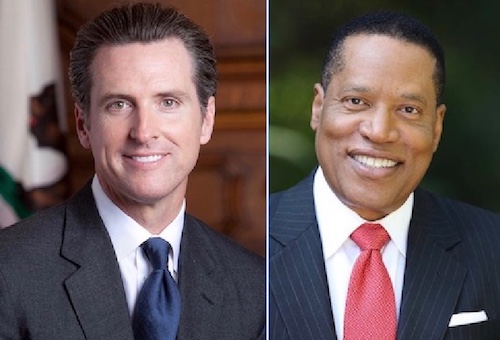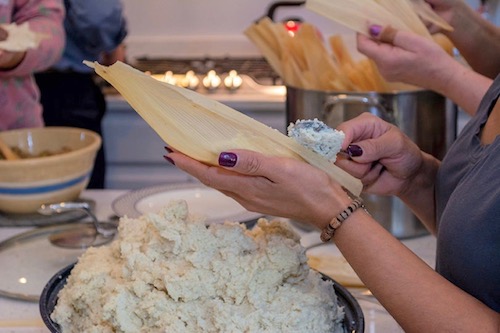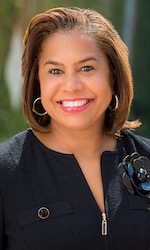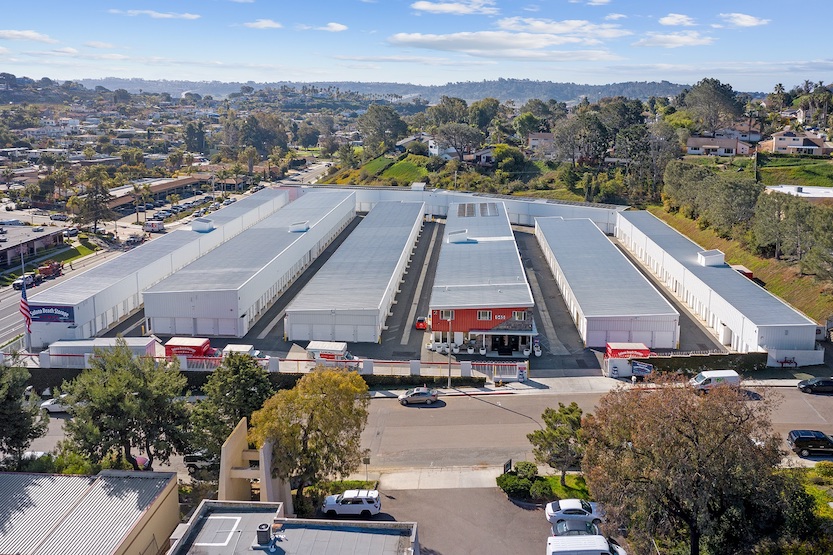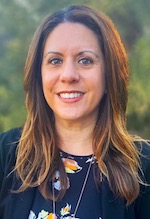Daily Business Report: Friday, Sept. 7, 2021
Recall Reflections
Gavin Newsom’s victory in California is more of a reality check for the
Republican Party than an endorsement of progressive policies
By Joel Kotkin
What started as a lark, then became an impossible dream—a conservative resurgence, starting in California—ended, like many past efforts, in electoral defeat. With his overwhelming victory in the recall election, California Gov. Gavin Newsom and his backers have consolidated their hold on the state for the foreseeable future.
One can quibble about the political wisdom of the recall gambit, particularly given that Newsom was up for reelection next year. But the main reason for the stunning defeat lay with the state’s highly bifurcated political economy, which might sustain a progressive mega-majority in the Golden State, but also alienates some voters—and limits the national appeal of the progressive governance model that Newsom embodies.
The sinking of the state’s once-buoyant middle class undermines the base for a two-party politics in California. The kinds of taxpayers who called the state home during the 1980s and 1990s are leaving, and few families are moving in. Many of the leading companies that employed middle-class workers—McKesson, Hewlett Packard, the oil and aerospace industries—are fleeing at a quickening pace.
California today works primarily for two key Newsom constituencies: unionized public employees and pop culture, tech, and financial leaders. Money from these groups gave Newsom a massive advantage in advertising and organizing. Newsom’s coffers exceeded those of the nearly bankrupt recall campaign and all the prospective candidates combined by almost three to one. The combination of tech IPOs and federal money has also financed massive relief funds for a third Newsom constituency—California’s highest percentage-in-the-nation poor population—allowing the governor to act like a modern-day Boss Tweed.
This electoral triangle remains too entrenched to dislodge, at least for now. Massive spending secured the votes of disengaged voters, even as the San Francisco Chronicle warned about “an alarming enthusiasm gap” among Democrats. The effort to reach enough of these voters clearly worked.
TOP PHOTOS: Gov. Gavin Newsom, left, and former challenger Larry Elder
County supervisors pave way for
legalization of small home kitchens
The County Board of Supervisors voted to move forward with plans to legalize microenterprise home kitchen operations, or MEHKOs. MEHKOs are defined by California law as a small retail food facility, operated from a private home.
The state allowed local jurisdictions to begin authorizing MEHKOs in 2018. So far, seven California cities and counties, including Santa Barbara and Riverside, have legalized these home-based food operations.
The ordinance would legalize local home kitchens that prepare, sell and serve up to 30 meals per day, or 60 meals per week. MEHKO operators would be allowed to earn a maximum annual revenue of $50,000.
MEHKO menus would be restricted to items that can be prepared and sold the same day and would exclude items that contain raw milk or raw shellfish. Meals could be served in the home, picked up by the customer, or delivered by the MEHKO operator.
MEHKO operators would be required to obtain a valid health permit from the county and submit to an initial inspection and annual inspections afterwards. MEHKO operators would also be required to obtain a Food Manager Certificate and any of their employees would be required to get a Food Handler’s card.
Full speed ahead on overhauling California recalls
By Ben Christopher | CalMatters
With the wreckage of the failed recall attempt against Gov. Gavin Newsom still smoldering, California Democrats have reached a new consensus: They really don’t want to do that again.
On the morning after voting ended and recall candidates conceded, the chairpersons of the election committees in the state Assembly and Senate said they’re kicking off a public debate to overhaul California’s recall process.
“Californians are very frustrated that we just spent $276 million on this recall election that, from the looks of it, certified what voters said three years ago and what voters could have said next year,” Assemblymember Marc Berman of Los Altos said at the virtual press conference today.
In unofficial and partial statewide returns, 5.8 million Californians voted to keep Gov. Newsom in office, compared to 3.3 million who voted to remove him. Newsom, himself, says the recall has been “weaponized.”
“The voters want to see a more democratic process put in place that keeps elected officials accountable, but prevents political gamesmanship,” added Sen. Steve Glazer of Orinda.
San Diego Women in Tourism & Hospitality
to host inaugural W.I.T.H. Conference
Women in Tourism and Hospitality (W.I.T.H.) will host the Inaugural W.I.T.H Conference Sept. 23-24, in-person at the Four Points by Sheraton San Diego Hotel.
The conference focus and theme is “Celebrating and Empowering Our Collective Voice.”
The full day conference will celebrate executive women who will share their inspirational stories of triumph and breaking the glass ceiling.
The Opening Keynote speaker is Julie Coker, president and CEO of San Diego Tourism Authority. Coker is the first woman to take the lead for tourism in the history of San Diego.
The Closing Keynote speaker is Annette Gregg, senior vice president of experience at Meeting Professionals International. Gregg is a hospitality industry expert, program adviser and instructor at SDSU’s College of Extended Studies.
The conference will include workshops led by top experts in their fields, exhibitor marketplaces showcasing the latest trends and products, opportunities to raise funds for scholarships and to network with old and new friends.
Sponsors anticipate 250 prominent emerging professionals to attend including, meeting planners, entrepreneurs, corporate partners, tourism executives, students, and industry supporters.
Moderna COVID-19 vaccine spurs lasting immune response
A new study from La Jolla Institute for Immunology (LJI) scientists helps answer the question: how long does immunity against COVID-19 last in vaccinated people?
As they report in Science, a low dose of the Moderna vaccine lasts for at least six months, and there is no indicator that vaccinated people will need a booster shot.
“This time point is critical because that is when true immune memory has formed,” says LJI Research Assistant Professor Daniela Weiskopf, who co-led the study with LJI Professors Alessandro Sette and Shane Crotty, Ph.D.
In fact, while the Moderna COVID-19 vaccine led to strong T cell and antibody responses for at least six months after clinical trial participants were fully vaccinated, it is likely that the immune response could last much longer. The researchers also show that this strong immune memory lasted in all age groups tested, including in people over age 70, a demographic especially vulnerable to severe COVID-19.
“The immune memory was stable, and that was impressive,” adds Crotty. “That’s a good indicator of the durability of mRNA vaccines.”

Defense Advanced Research Projects
Agency awards contract to Northrop Grumman
The Defense Advanced Research Projects Agency (DARPA) Blackjack program has awarded Northrop Grumman Corporation a contract for Phase 2 development of an advanced, software-defined positioning, navigation and timing (PNT) payload, with options to build units destined for space flight.
The PNT payload features Northrop Grumman’s Software Enabled Reconfigurable Global Navigation Satellite System (GNSS) Embedded Architecture for Navigation and Timing (SERGEANT) capability. The Phase 2 development effort is valued at $13.3 million if all options are exercised through emulation, critical design and build.
One of first self-storage projects in county
is sold to Invesco Real Estate
Solana Beach Storage, one of the first self-storage projects to be developed in San Diego County and was operated by the original developer, has been sold to Invesco Real Estate, a real estate investment manager. Purchase price was not disclosed.
Solana Beach Storage totals 83,000 rentable square feet and 895 units and was approximately 92 percent occupied at the time of sale.
Greg Wells, Luke Elliott and Mike Mele with Cushman & Wakefield’s Self Storage Advisory Group handled the transaction on behalf of the seller, Solana Beach Storage L.P.
Salk Institute and Sanford Burnham Prebys
sign licensing agreement with Endeavor BioMedicines
The Salk Institute, along with Sanford Burnham Prebys, have signed an exclusive licensing agreement with California-based Endeavor BioMedicines for an intellectual property portfolio relating to cancer therapeutics and diagnostics that target ULK1/2, a protein involved in cellular recycling, jointly developed by researchers at Salk and Sanford Burnham Prebys.
The negotiations were led by the Salk Office of Technology Development and the Sanford Burnham Prebys Business Development Office.
“This line of anti-cancer research has the potential to have a significant impact for patients,” says Reuben Shaw, director of the Salk NCI-Designated Cancer Center, professor in Salk’s Molecular and Cell Biology Laboratory and the William R. Brody Chair. “We are thrilled that the benefits of our approach are being realized with this clinically important licensing agreement.”
Cuyamaca College VP chosen for
national presidential fellowship
Jessica Robinson, vice president of Student Services at Cuyamaca College, is one of 40 educators across the nation to be selected by the Aspen Institute College Excellence Program for a 10-month fellowship designed to prepare future community college presidents.
Robinson is one of two from San Diego County chosen for the 2021-22 class of the Aspen Rising Presidents Fellowship. This round of the highly selective leadership program will begin in November, partnering participants with current and former community college presidents serving as mentors. Delivered in collaboration with the Stanford Educational Leadership Initiative at Stanford University, the fellows will learn strategies to lead internal change, improve student outcomes in and after college, and create strong external partnerships with K-12 schools, four-year colleges, employers, and other partners.
Robinson earned her associate degree from Cuyamaca College some 20 years ago, and went on to receive her bachelor’s and master’s degrees in social work and a doctorate in educational leadership, all from San Diego State University. She began as vice president at Cuyamaca College in 2018 after more than 15 years working at San Diego State University, last in a dual role as assistant dean for Student Affairs and interim associate dean for Academic Affairs.
John and Sally Hood Family Foundation
gives $3 million to UC San Diego
The John and Sally Hood Family Foundation has given $3 million to establish the Hood Family Endowed Dean’s Chair in Public Health at University of California San Diego. The gift is intended to support excellence in research, education and practice of public health at the Herbert Wertheim School of Public Health and Human Longevity Science at UC San Diego.
Cheryl A.M. Anderson, founding dean of Herbert Wertheim School of Public Health, has been named the inaugural chair holder. An endowed chair is one of the highest honors that an academic institution can confer upon a faculty member. It recognizes excellence in their research and clinical practice.
In addition to the new chair, the Hoods recently funded a UC San Diego Health mobile COVID-19 vaccine clinic that supports equitable access to a lifesaving resource by distributing vaccines in underserved communities.
Cheryl A.M. Anderson, founding dean of the Herbert Wertheim School of Public Health and Human Longevity Science at UC San Diego, is named inaugural chair in public health.
NanoCellect accelerates growth plans
with close of $35 million in C and D Rounds
NanoCellect Biomedical Inc. announced the close of $35 million of financing to further accelerate commercial growth plans and new product development goals.
NanoCellect’s $15 million Series C Round was led by Vertical Venture Partners and closed early this year. VVP was joined by existing investors including Agilent, Illumina Ventures, and FusionX Ventures, and several new investors including Yonjin Capital and Sagian Equity.
VVP’s decision to lead this round was driven by their confidence in the demonstrated market adoption of NanoCellect’s proprietary microfluidic platform for single-cell applications that require high cell viability for successful downstream research.
Doorstead launches in San Diego
Doorstead, one of the fast growing property management brokerages in the US, launched its premier guaranteed-rent service in San Diego. Doorstead provides landlords with full-service property management and guaranteed rent within a set time frame, even if the property is vacant.
It is one of the few companies that provides this offering for long-term rentals. The company has seen great demand for its offering throughout the nation, and with its expansion into San Diego, the company now covers the full Southern California coast. San Diego will be kicking off the first of a long series of market expansions that will occur over the coming months and years.
Bumble Bee Seafood donates $900,000
in seafood products to Feeding America
In support of Hunger Action Month, The Bumble Bee Seafood Company is continuing to honor its commitment to feeding lives through the power of the ocean with a donation of more than $900,000 in nutritious seafood products to Feeding America. The product will be donated to areas of the country that have been heavily impacted by the COVID-19 pandemic.
The 120-year-old seafood company is also finding ways to motivate U.S.-based corporate employees to give back. Recently, the company hosted a summer wellness challenge for employees and their family members in partnership with the Vizer app, which supports food banks across the country. Participants were able to donate a meal for every 10,000 steps taken or 30 minutes of physical activity, resulting in 1,197 meals donated to combat hunger in America.

